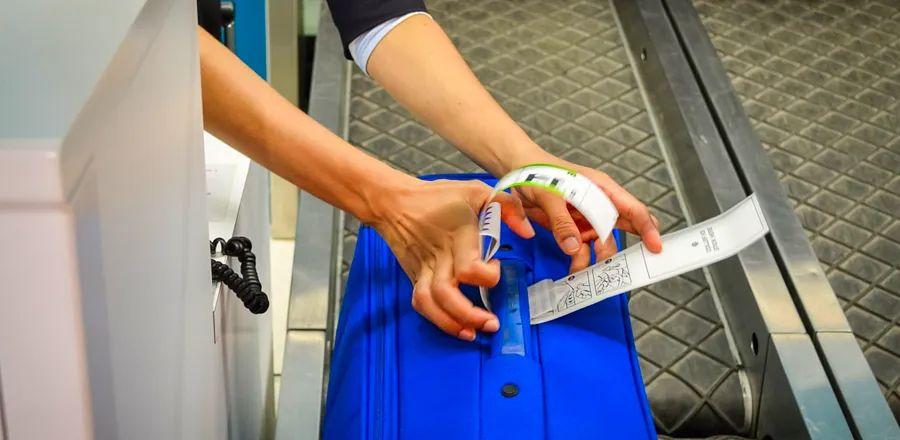7 Clever Tips to Eliminate Checked Baggage Fees on Every Flight

Not too long ago, Americans could check their bags for free on flights.
In 2002, American Airlines pioneered bag fees in the U.S., initially charging $50 for bags over 50 pounds. Within six months, United and Alaska Airlines followed suit. However, it wasn't until 2008 that American introduced a $15 fee for the first checked bag, prompting other major airlines to implement similar fees due to the Great Recession and rising fuel costs.
Today, checked baggage fees are everywhere, with several U.S. airlines like United, JetBlue, Alaska, and American recently raising these fees again. According to the Department of Transportation, travelers in the U.S. paid around $5.5 billion in checked bag fees during the first three quarters of 2023.
Nevertheless, with strategic planning and smart packing, you can completely bypass these fees, saving both money and stress. Here’s your guide to traveling without incurring checked baggage charges.
1. Choose an airline that doesn’t impose baggage fees
Southwest Airlines is the sole airline in the U.S. that permits passengers to check two bags for free, regardless of their ticket class.
“If you need to travel with bags or gear like golf clubs and skis, check if you can fly Southwest, even for part of your journey, to save money,” suggested Katy Nastro, a travel expert from the flight deal tracking service Going.com.
Also, look for airlines that allow specific types of luggage to travel for free. For instance, Alaska Airlines permits passengers to check a case of wine or a ski bag at no extra cost, irrespective of fare class.
2. Sign up for a frequent flyer program and consider a cobranded airline credit card
Staying loyal to a single airline (or an airline alliance) can earn you benefits such as free upgrades, discounted lounge access, and, crucially, complimentary checked bags. Keep in mind that policies can differ by airline and the tier you've achieved.
Additionally, credit cards associated with airlines often include free checked bags for the cardholder and at least one companion. (For example, Delta SkyMiles credit cards from American Express offer one free bag for up to nine people on the same reservation.) However, be sure to check the details: with United, you must purchase the flight using the credit card, while American and Delta allow the benefit as long as the card is linked to the frequent flyer account.
Some non-affiliated cards, such as the Chase Sapphire Reserve and Capital One Venture X, provide travel credits that can be used to offset baggage fees.
3. Think about upgrading your fare
Sometimes, the price difference between Basic and Main Economy or Main and Premium Economy is worth the extra cost, especially when it comes to baggage allowances.
“For instance, upgrading from Basic to Main Economy on long-haul flights to Europe is often a worthwhile investment because it typically includes checked bags, ticket flexibility, improved boarding, and seat selection,” Nastro explained. “Some airlines, such as SAS, TAP, and Icelandair, may even offer a lower fare for Main Economy compared to Basic with an added baggage fee.”
4. Prepay for baggage to save on fees
Nastro emphasized that many international and domestic low-cost airlines have differing policies regarding carry-on luggage, making it essential to verify those restrictions in advance. Just because your bag fits one airline's guidelines doesn’t guarantee it will for another, especially regarding weight limits.
“Low-cost carriers are known for imposing high fees for extras, but what many might not realize is that costs can rise if you wait to add baggage later,” Nastro warned. “It’s wise to purchase your checked bag as soon as possible.”
5. Gate-check your baggage
If you can manage to pack your belongings into a carry-on but would rather not haul them through the various airports, you might consider volunteering to gate-check your bag.
Gary Leff, a points-and-miles specialist and founder of the blog View From the Wing, noted that while “some airlines and agents may attempt to charge for this (Spirit and Frontier are known for this), it often gets overlooked in the rush to board planes and ensure timely departures.”
6. Think about shipping your luggage instead
If you need to transport large or heavy items that won’t fit in your carry-on, consider sending them to your destination rather than checking them as luggage. Shipping in advance can be more economical than paying for checked bags, particularly for oversized or overweight items. Plus, shipping lets you track your belongings and guarantees their safe arrival at your destination.
7. Travel light and stick to carry-on only
One of the most reliable ways to avoid checked baggage fees is to pack lightly enough to fit your belongings into a carry-on bag that can be stored under your seat or in the overhead compartment for free (especially since airlines are finally increasing overhead bin space for all carry-ons). Experts suggest there's a psychological tendency to overpack, but having a solid strategy for packing light can help you manage both your luggage and any associated fees.
Evaluation :
5/5



